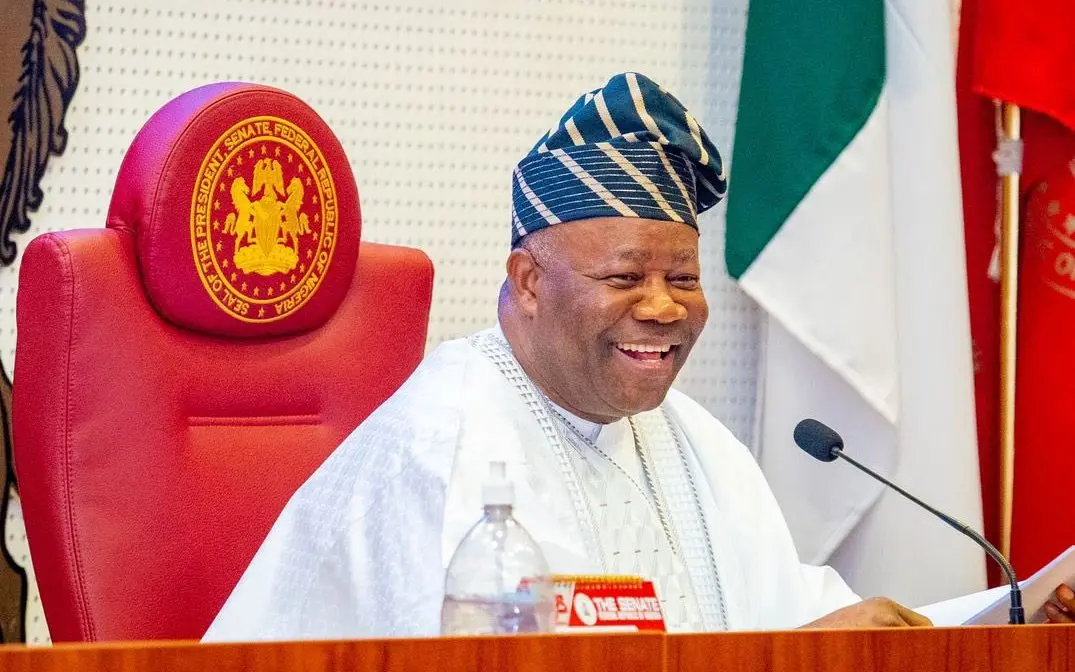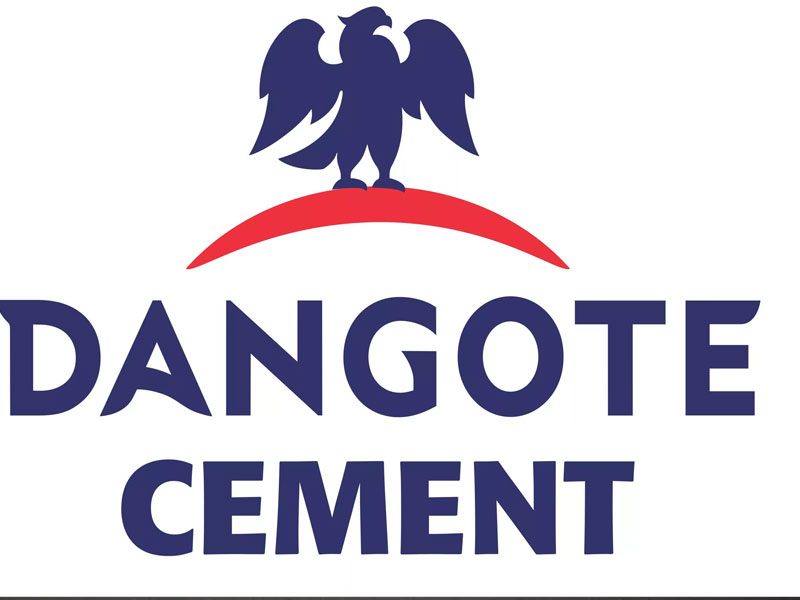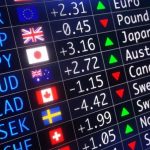General
FG Lists Achievements of School Feeding Program

By Dipo Olowookere
The National Social Investments Office (NSIO) has highlighted the achievements and critical areas of the economy the National Home-Grown School Feeding Programme (NHGSFP) has positively impacted on, since its launch in 2016.
The NSIO explained that the school feeding initiative has been driving financial inclusion and reducing poverty while boosting the prosperity of the cooks by providing them access to useful and affordable financial products and services that meet their needs.
Special Adviser on Social Investments to the President, Mrs Maryam Uwais has said that in addition to the over nine million pupils in classes 1 to 3 currently benefitting from the programme in 26 States, almost 97,000 community women have been engaged and trained to prepare locally grown food and serve local delicacies to primary beneficiaries of the programme in almost 50,000 public primary schools nationwide.
In a document entitled ‘Progress on the NGHSFP’, released by the NSIO, the Federal Government highlighted the achievements and critical areas of the economy the National Home- Grown School Feeding Programme has positively touched.
It explained that it has been driving financial inclusion and reducing poverty while boosting the prosperity of the cooks by providing them access “to useful and affordable financial products and services that meet their needs”.
It added that “more than 100,000 smallholder farmers and youth are engaged in the overall value chain of National Home-Grown School Feeding Programme; from production to processing, aggregation, packaging to distribution across different States in Nigeria.”
The document also noted that apart from increasing school enrolment and creating jobs, the feeding programme has helped to improve fish farming and poultry business further, in addition to making a significant investment in the beef industry.
It disclosed that the FG has invested over N253million to provide the fish consumed weekly in all the 26 States in collaboration with fish farmers cooperatives, as well as the Association of Aquaculture Farmers and Agro Processors of Nigeria.
“This helps to improve the livelihood of 2,716 fish out-growers for mass fish production in these States. Each week, these fish out growers produce approximately 83 metric tons (over N92million) of fish for the programme. In tandem w ith this, 1164 factory workers are involved in the fish processing. In the first year, the Agro Processors generated a profit of N2.5 million.
The document also highlighted its effect on the poultry and livestock sectors, explaining that 138,000 birds and 6,800,000 eggs worth N201 million and N204million respectively are purchased weekly from members of the Poultry Association of Nigeria in the various States.
It added that, “the Meat Sellers/Butchers Association in Nigeria supply an estimated 594 cattle from various local abattoirs across the country to support the programme. This is valued at over N570million per annum, thereby enhancing their production scale and profitability.”
Highlighting the programme’s impact on youth empowerment and food production, the document disclosed that, “over 500,000 young adults are engaged on the programme to support (through teaching assistant jobs in schools) directly, extension officers in agriculture, as well as health services within the community, having each received training and technology-enhanced devices (loaded with relevant modules) worth N100, 000 from the N-Power programme. Most of these youth serve as intermediaries between the small farmers and cooks, including teachers in the public primary schools where feeding is taking place.”
“The Anchor Borrowers Programme (ABP) of the Central Bank of Nigeria under the Buhari-led Administration has made available N82billion in funding to 350,000 farmers of rice, wheat, maize, cotton, cassava, poultry, soybeans and groundnut; who have cultivated about 400,000 hectares of land. Over 350,000 farmers in orange-fleshed sweet potato, poultry, rice, groundnut and soybean have been supported with funding for planting material and fertilizer to increase production.”
Contrary to what some might believe, the FG affirmed that its investment into the school feeding programme is proving to be cost-effective, sustainable and an example to be emulated by other countries.
“Not only does it produce mutually reinforcing outcomes, it also serves as a strong, sustainable economic model. Farmers are able to increase their production capacity and income through a structured and predictable market. Additionally, women and youth are economically empowered through their participation in the food supply chain.
The evidence for the positive impact of school feeding programmes on the education, health and the economy of the beneficiary communities is clear. The example of Nigeria’s school Feeding Programme provides an inspiration to other countries looking to develop their own sustainable school feeding programmes.”
General
Senate Forms Seven-Man Committee to Harmonise Electoral Act Amendment Bill

By Adedapo Adesanya
The Senate has constituted a seven-man committee to harmonise contributions and opinions on the Electoral Act Amendment Bill, 2026, with a mandate to present a consolidated report to the chamber next Tuesday.
The decision followed over two hours of consideration of the bill’s provisions during a closed-door session on Thursday.
The committee is chaired by the Chairman of the Senate Committee on Judiciary, Human Rights and Legal Matters, Mr Niyi Adegbomore.
Other members are Senators Adamu Aliero, Aminu Tambuwal, Adams Oshiomhole, Danjuma Goje, Tony Nwoye, and Titus Zam.
The group has three days to conclude its assignment and submit its report for consideration at the next plenary session scheduled for next week.
The Senate on Thursday commenced consideration of the Electoral Act 2022 (Repeal and Re-enactment) Bill 2026, moving into a closed-door session to review documents submitted by the Chairman of the Senate Committee on Electoral Matters, Mr Simon Lalong.
The Electoral Act (Repeal and Enactment) Bill, 2025 would expand voter participation, safeguard against electoral fraud, and strengthen institutional capacity of the Independent National Electoral Commission (INEC).
The closed session was convened to allow lawmakers to thoroughly examine the proposed amendments and supporting documents before engaging in further legislative debate on the bill.
This development comes after the upper chamber deferred consideration of the bill on Wednesday, giving lawmakers time to prepare for a detailed review.
Although the House of Representatives has already passed the bill, Senate President Senator Godswill Akpabio underscored the need for thorough scrutiny, given the bill’s implications for the nation’s electoral process.
“This is a very important bill, especially as it is election time. We must take our time to ensure justice is done to all, so that we do not end up at the tribunal,” he said.
According to the committee’s findings, a clause-by-clause analysis of the bill indicates that enacting the legislation would leave Nigerians with an enduring legacy of electoral integrity, enhance transparency, and boost public confidence.
The bill contains more than 20 key innovations distinguishing it from previous electoral frameworks, including provisions recognising the voting rights of prisoners and mandating INEC to register eligible inmates in correctional facilities nationwide.
It also prescribes sanctions for vote-buying ranging from a fine of N5 million to a two-year jail term, as well as a 10-year ban from contesting elections. It also recommends mandatory jail terms and higher fines for offences such as result falsification and obstruction of election officials.
Others include standardising delegates for indirect party primaries to prevent arbitrary determination of delegate criteria by party leaders, while addressing perennial funding challenges to the Independent National Electoral Commission (INEC) by mandating the release of election funds at least one year before polling day.
General
Dangote Cement Ibese Plant Launches Safety FairPlay Initiative

By Modupe Gbadeyanka
A Safety FairPlay initiative designed to drive behavioural change and cultural shift towards safety conducts among its employees has been launched by the Ibese Plant of Dangote Cement Plc.
This programme will drive lasting behavioural and cultural change through an equitable and transparent framework that promotes safe conduct. Built on three core pillars—Recognition, Correction (Coaching) and Discipline.
It rewards positive safety behaviour, ensures consistency in addressing at-risk actions, and encourages open reporting of incidents, near-misses and errors, the company said in a statement on Thursday.
The scheme will be replicated at all the plants of Dangote Cement, marking a significant milestone in strengthening the Company’s safety culture, the organisation added.
The pilot launch of this policy recorded impressive participation from both the management and employees, thus underscoring a shared commitment to safer work practices.
The Technical Director of the cement giant, Mr Anandam Duraisamy, emphasized the strategic importance of the initiative to the business and called on employees to champion a safety culture anchored on fairness, accountability, recognition, and continuous improvement.
He noted that the Safety Fairplay marks a defining moment in the company’s journey toward building a workplace where safety is not just a policy, but a shared mindset—an everyday habit that defines who we are and how we work. We are here to launch an initiative that aims to transform not only what we do, but how we think, act, and respond when it comes to safety.
“Safety FairPlay is about building trust, consistency, and accountability in how we manage safety. When people know that safe behaviour is recognised, risky actions are fairly addressed, and everyone is treated equitably, safety becomes a shared responsibility and a true part of our culture.
“This initiative is about behavioural and cultural change. It recognises that true safety excellence goes beyond equipment, procedures, or compliance; it begins with people-our attitudes, our choices, and our willingness to look out for one another.
“Every incident prevented, every risk spotted, and every safe action taken strengthens our organisation. And that strength comes from you—from each member of our workforce embracing safety as a personal responsibility and a collective value,” he stated.
Also speaking, the Ibese Plant Head of Health, Safety and Environment (HSE), Mr Elvis Akalusi, commended the management for driving the programme and applauded employees for their enthusiastic embrace of the initiative.
He affirmed that the Safety FairPlay Initiative would be fully embedded into the plant’s daily operations, with the full collaboration of all heads of departments.
“This initiative will offer the tools, coaching, recognition, and accountability needed to help each of us make safer decisions. But its success depends on our shared commitment—our courage to consistently do the right thing, even when no one is watching.
“Let us approach this new chapter with open minds and a determination to improve. Let us build a culture where speaking up is encouraged, learning is continuous, and mistakes become opportunities to grow—not reasons for fear,” he stated.
General
Navy Unveils Roadmap for Nigeria’s 2.5mbpd Crude Output Target

By Adedapo Adesanya
The Nigerian Navy via its Central Naval Command has unveiled a fresh security coordination roadmap with oil majors and maritime stakeholders to ensure security enforcement aligns with plans to boost the country’s crude oil production to 2.5 million barrels per day.
The renewed push followed back-to-back high-level engagements held this week between the Central Naval Command, major oil exploration companies, and key maritime industry players, which stakeholders agreed could be delivered if crude oil theft, sabotage, and operational disruptions across the Niger Delta are decisively addressed.
Flag Officer Commanding, Central Naval Command, Rear Admiral Suleiman Ibrahim, told participants that maritime security remains critical to Nigeria’s economic survival and energy ambitions.
“Maritime security is a collective responsibility,” Rear Admiral Ibrahim said.
“Sustainable outcomes can only be achieved through close collaboration and mutual understanding between the Nigerian Navy and you, our industry partners whose assets, personnel, and investments we protect.”
During the engagement with oil executives, participants jointly affirmed that President Bola Ahmed Tinubu’s 2.5m bpd mandate is “doable and achievable”, provided security agencies and industry operators align operations, intelligence sharing, and response strategies.
Rear Admiral Ibrahim stressed that the Navy’s role is to create an enabling environment for uninterrupted oil and gas operations, assuring stakeholders of stronger protection for offshore and onshore assets within the Command’s Area of Responsibility.
He also conveyed the full backing of the Chief of the Naval Staff, CNS, Vice Admiral Emmanuel Ikechukwu Ogalla, noting that Naval Headquarters remains committed to deploying the required platforms, assets, and leadership to strengthen maritime security.
“The Chief of the Naval Staff is fully committed to providing the platforms and strategic leadership needed to optimise security deployments across the Central Naval Command,” the FOC said.
According to him, the dual meetings provided an opportunity to reassess the evolving security landscape, review emerging threats, and fine-tune response mechanisms in line with industry realities.
“We welcome frank and constructive engagement,” Rear Admiral Ibrahim added. “Your feedback is vital to improving our operational effectiveness and service delivery.”
According to a statement, industry stakeholders expressed renewed confidence in the Navy’s leadership and ongoing inter-agency cooperation, noting that improved maritime security is already translating into greater operational stability and production recovery.
-

 Feature/OPED6 years ago
Feature/OPED6 years agoDavos was Different this year
-
Travel/Tourism9 years ago
Lagos Seals Western Lodge Hotel In Ikorodu
-

 Showbiz3 years ago
Showbiz3 years agoEstranged Lover Releases Videos of Empress Njamah Bathing
-

 Banking8 years ago
Banking8 years agoSort Codes of GTBank Branches in Nigeria
-

 Economy3 years ago
Economy3 years agoSubsidy Removal: CNG at N130 Per Litre Cheaper Than Petrol—IPMAN
-

 Banking3 years ago
Banking3 years agoSort Codes of UBA Branches in Nigeria
-

 Banking3 years ago
Banking3 years agoFirst Bank Announces Planned Downtime
-

 Sports3 years ago
Sports3 years agoHighest Paid Nigerian Footballer – How Much Do Nigerian Footballers Earn












